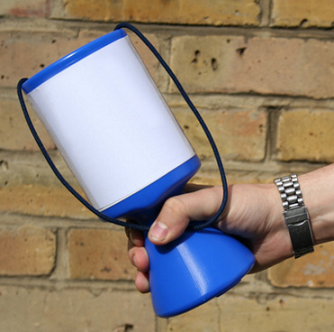 No charity wants to hit the headlines for mismanagement of finances or aggressive fundraising tactics, yet this is beginning to happen for some of our largest and most respected organisations. Charities and Community Interest Companies or CIC’s are facing huge challenges to their organisations about how they are funded and the public hasn’t yet woken up and realised the full extent of their challenges.
No charity wants to hit the headlines for mismanagement of finances or aggressive fundraising tactics, yet this is beginning to happen for some of our largest and most respected organisations. Charities and Community Interest Companies or CIC’s are facing huge challenges to their organisations about how they are funded and the public hasn’t yet woken up and realised the full extent of their challenges.
Let’s take Kid’s Company. They followed the traditional charity route of providing services for vulnerable children and their families through grant funding. They are effectively being the foot soldiers on the ground for work paid for by Government (taxpayers money). The lack of transparency and poor financial controls was the cause of their spectacular, sudden collapse, but clear warning signs were ignored by officials and politicians, probably because of concerns about adverse publicity. Kid’s Company were undoubtedly expert at PR and lobbied hard for continued Government financial support.
Age UK are a much longer established charity. Their brand is well known to the UK public. Again, core funding for the local organisations from Government contracts (taxpayers money) has been subject to large scale reductions, which means the charity has had to look to fundraising to continue the work it does supporting vulnerable elderly people and their families. One of the ways they have achieved this is to turn to big business, specifically the energy company E.On, who have paid the charity commission on an AGE UK branded energy package for every recommendation received. In principle this is laudable, as many pensioners do not feel confident switching energy suppliers and some don’t even have access to the internet or the knowledge of how to search for the best deals online. But the devil is in the detail, as energy prices have come down and some of those who switched are now locked into 2 year deals which are less competitive than when they were initially entered into. The unfortunate effect of this method of funding is that the Age UK brand has been damaged and the product removed bacuase of the adverse publicity.
Many larger charities have turned to intermediaries to increase their funds from private donors. Whether done knowingly or not, sometimes the tragic result was very aggressive telemarketing campaigns, implemented by companies who were only interested in their own commission rather than looking after the reputations of the organisations they were paid to represent. Many of us were also put off supporting charities after the emergence of chuggers on our high streets.
Another route that charities are exploring or are starting to rely on more is that users of their services who can afford to contribute (either in whole or in part) should do so. In other words, they are acting as a business, charging a fair rate for the provision of services, but having a contingency for those who are most in need but least able to support themselves. This model is very challenging for charities and their staff, some of whom feel that morally this model isn’t consistent with their long held beliefs and values of public service.
So what does the public really want our charities to do? Some will argue that charities should never work in collaboration with commercial companies, that this taints their reputation and could be seen to cloud their judgement so they can no longer be trusted by us to be truly independent. Others argue that the good work the charities provide should not be put at risk, so having to raise the money through more commercial means is acceptable, but should always be transparent to the public.
As the public debate commences and some politicians call for greater regulation, spare a thought for the many small, local organisations for whom yet more red tape will mean increased operating costs. Many of these deliver a huge social return on investment, for example by helping the elderly to remain in their homes rather than go into full time care, or by supporting youth work which keeps youngsters motivated to stay in education and training. Measuring that social return is challenge enough without adding more layers of bureaucracy. We need a workable system that allows us to retain our trust in these organisations.
One issue is certain, somebody has to pay to keep these organisations alive. The public needs to “ wake up, and smell the coffee!” Collectively we have unrealistic expectations of charities. We want them to be there in times of need, but we don’t have the appetite to make the sizeable private donations required to fund them properly, nor do we vote for political parties who promise to raise taxes to continue with large enough grants to keep them adequately funded.
Let the debate commence!
 Gill Hutchinson,
Gill Hutchinson,
MRE Associate and Marketing specialist
Gill has worked with more than 50 local and national charities and other not for profit organisations
